Tim Burton has heard the rumour going around, and he’d like to nip it in the bud.
“That I’ve grown up? Uh, umm, well, gee, I guess I know what people are trying to say with that, but I guess I’d have to plead innocent to it. I’m older, you know, but I’m still the same guy that made Pee-wee’s Big Adventure.”
The rumour has been making the rounds since the initial screenings of Big Fish, about a dying man (Albert Finney) and his adult son (Billy Crudup) who wants Dad to tell him the truth about a life he’s transformed into legend before the old man dies.
Burton, 45, says he was a bit taken aback when he first read the word “matured” in proximity to his name, but that he tried to put it in perspective.
“Partly, I think people are reacting to the fact that it isn’t about superheroes or rocket ships, and that it’s maybe more whimsical than ironic. Maybe when you’re young, you’re ironic and when you’re older, it’s whimsical. But the truth is, I’ve taken all my movies seriously.
“Well, at least the movies that I had actually started shooting before the posters were in the theatres.”
That’s a reference to Burton’s previous film, a remake of Planet of the Apes that 20th Century Fox hoped would be a franchise for the studio. Instead it crashed and burned, making a lot of money on opening weekend and then disappearing.
“I wasn’t thinking about trying to rebound from Planet of the Apes with Big Fish. I just wanted to get back to making movies the way they should be made, which means you have to have a good script first,” he said.
While some critics and fans of Burton’s darker films, like Batman and Sleepy Hollow, have found Big Fish too fanciful (“Canned in its own saccharin,” read one internet posting), others have declared it the best of Burton’s career, and it has already begun showing up on best of the year lists.
Burton’s film expands greatly upon Daniel Wallace’s slim, episodic novel, illustrating the dying man’s tall tales involving ghost towns, a witch and a giant.
Ewan McGregor plays Finney’s imagined self as a young man; Jessica Lange is Finney’s loving, indulgent wife; Danny DeVito is a circus ringmaster, and Helena Bonham Carter, the mother of Burton’s first child, two-month-old Billy, plays a mystery woman who looms large in the fable.
“Being a father is great, you know, especially now that I’m mature,” jokes Burton. “But it really is a great responsibility. I would have probably made this film at any time in my career, really, because it’s obviously up my alley. But, yeah, becoming a dad, and then my own dad dying about a year ago undoubtedly figures in there somewhere.”
Burton carries a drawing pad, pens and watercolours with him even when he is going out for papers. He says he was able to visualise the film he wanted to make as he read Wallace’s book, “which is always a good sign”, but that after cinematographer Philippe Rousselot (whose credits include Diva and A River Runs Through It) and production designer Dennis Gassner (who has worked on many of the Coen brothers films) hired on, “their ideas were usually better”.
Making the movie in Alabama, primarily in Montgomery and Birmingham, also altered Burton’s pre-imagined landscape, he says.
“When you shoot on locations instead of big sets, like we did with the Batman movies, you always soak up the vibe,” says Burton. “There’s a specific kind of Southern storytelling, and I hope the movie reflects that.”
Burton’s vision also precluded extensive use of computer-generated imagery in favour of real sets and a “lot of rubber costumes”.
“For one scene, in which Ewan romances the girl of his dreams with thousands of flowers, the producers were like, ‘Well, we’ll just do all that with CGI’. And I was all, ‘No, no, they have to be real flowers. You can feel the difference’.”
Bloodied but unbowed by the reaction to his Planet of the Apes remake, Burton has all but officially signed on to direct Charlie and the Chocolate Factory, a non-musical remake of Willie Wonka and the Chocolate Factory with Johnny Depp taking the role played by Gene Wilder in the 1971 film.
Burton says his version would hew closer to Roald Dahl’s beloved novel but that as with James and the Giant Peach, a Dahl adaptation Burton produced, “there will be room for interpretation”.
“Willy Wonka is one of those pictures that’s like a great childhood memory, but then when you see it, it’s not all that terrific. I think just having Johnny in the film gives it a different spin, but I’ve got a few ideas up my sleeve, too.
“The only thing I’m worried about now is that I might be a little too mature, you know? God, I hope not. I don’t want to have make Gandhi 2 or anything.”

